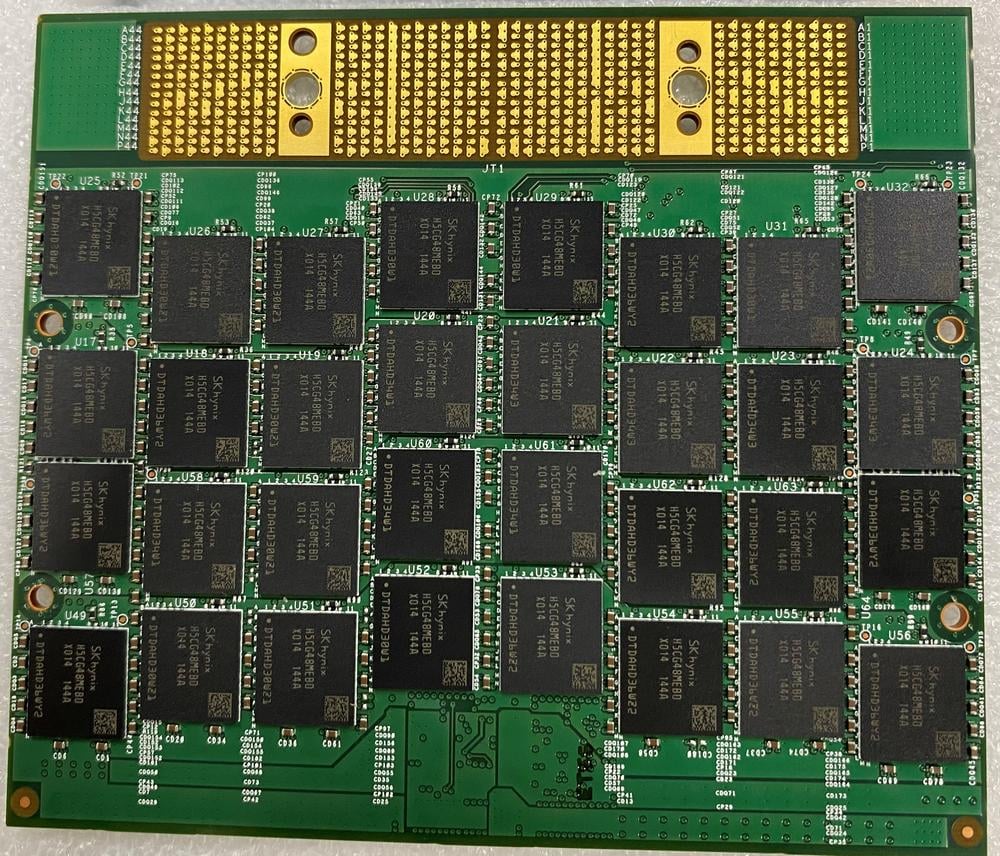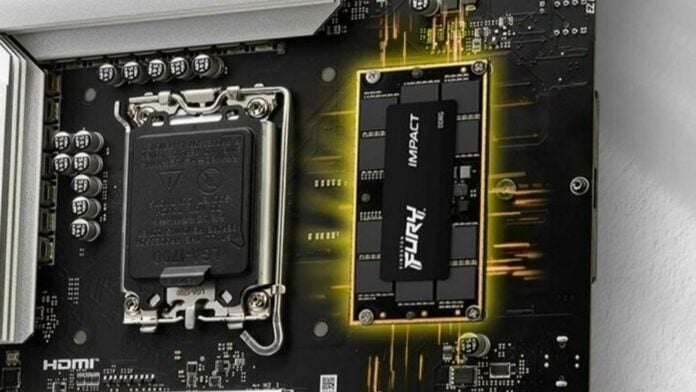Gigabyte is seemingly working on a CAMM2 version of its Z890 Aorus Tachyon Ice motherboard. The new CAMM2 (Compression Attached Memory Module) RAM format promises higher operating speeds and capacities.
The eagle eye of @unikoshardware on X spotted the Z890 Aorus Tachyon Ice CAMM2 listed in the Z890I Aorus Ultra documentation presented by Gear Seekers. The board was previously present at Computex but no specs were revealed. That said, simply by looking at the design, we could spot the new CAMM2 DDR5 memory location.
The latter is a new RAM format that uses a socket-type connection instead of the DIMM slots we all know. In a way, it’s like going back to the old days when memory was socketed to the motherboard chip by chip. The reason for this change is double. First, sockets offer shorter links between the CPU and DDR5 chips, which improves latency and maximum frequency. Second, the CAMM2 format is more compact, allowing for higher capacities at the same size compared to DIMMs. Not to forget that CAMM2 doesn’t affect CPU-cooler compatibility.
More specifically, CAMM2 modules are expected to offer 256GB of capacity each while reaching speeds unseen on DIMM DDR5 RAM. That said, DDR5 has managed to hit much higher frequencies lately thanks to the CUDIMM design, which integrates a clock generator inside the DIMM. Another advantage of CAMM2 is its ability to deliver all of the above to laptops. These mobile devices generally maxed out at 5,600MT/s or so at a time when desktops managed to exceed 8,000MT/s. There are even plans for LPDDR5x CAMM2 modules boasting higher efficiency for battery-powered devices.

Alongside CAMM2, Z890 Aorus Tachyon Ice CAMM2 should be a high-end board packing the latest tech. You can expect Thunderbolt 5 connectivity, 5GbE LAN, Wi-Fi 7, and maybe even dual PCIe Gen 5 slots. However, unless Gigabyte opts for a novel solution, we should only get a single CAMM2 socket, like MSI’s Z790 Project Zero Plus. And before you freak out, said socket can be removed/replaced in case of damage.
Additionally, since CAMM2 modules lay flat on the motherboard, users can install aftermarket coolers to further improve temperatures and push frequencies up. A perfect match for a board targeting enthusiasts. Couple that with the new clock generators featured on DDR5 DIMMs, and you can probably cross the 10,000MT/s barrier, assuming your CPU’s memory controller can handle that.
All in all, CAMM2 is a nice compromise between DIMM modules and soldered RAM. It offers higher speeds while remaining DIY friendly. We just have to wait for motherboard makers to release supported hardware to check that in person.

